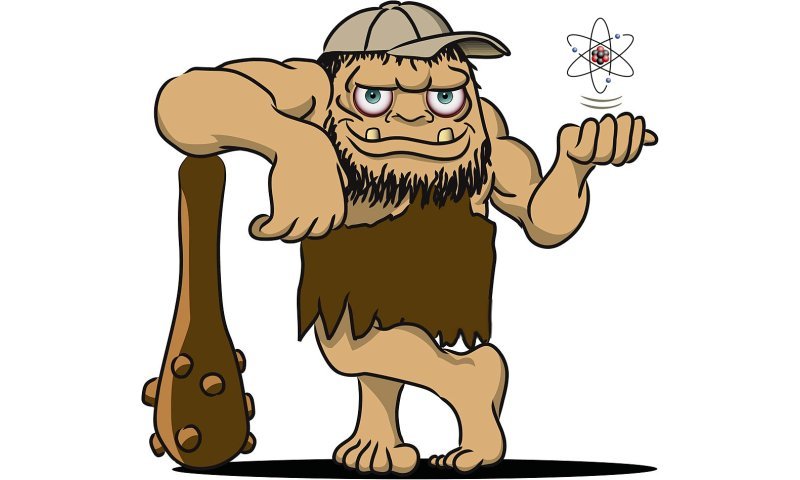John Dewey once said that science is something very foreign to us humans. This statement makes no sense what so ever. As long as humanity exists, since its earliest days, humanity was paired with science and searching for answers.
Today, we describe science as a unity of observation and practical experimentation. However, this description is just as young as the scientific method itself. The real defining questions is much older and was firstly said aloud by our ancient ancestors. This question is “what is working?” You can’t simply make up an explanation. One has to observe and witness in order to answer. Let’s imagine a hunter from Paleolithic. Let’s give him a name and call him Thag. This hunter is smart and picks up rocks with pointy ends and makes better spears that others. His people are well fed.

Image Credit: KaselowGraphics
Think of Ptolemy. He came up with his vision of our universe. Today, we know that his vision was fundamentally wrong. However, we must understand that his studies were based on actual observation. With the amount of data Ptolemy had at his disposal, other assumptions sounded wrong. His works allowed our ancestors to predict how the sun, moon, and other celestial bodies move. The system looked right. It worked. Then, Copernicus created his model and it was polished by Kepler much later. These models were merely improvements based on contemporary observations. Progress allowed Einstein to deliver his great theory of relativity.
If you think about all of that, you will understand that both Einstein and Thag did science. George Sarton, in his book Introduction to the History of Science, said that the difference between ancient and modern science is merely a word. While the former was very poor, very imperfect, yet predictable, the latter is imperfect, yet predictable. The only thing that connects us throughout time is curiosity. Thag was just as curios about the world around him as any of modern scientists. The difference is that we have our microscopes and machines, while Thag had only his senses. The same things drive progress – we want to live better, we want to be richer, and we want to be more productive.
These similarities are what make me think that it is natural for humanity to do science. This is maybe the most natural thing for us after eating. I have no doubts that Eratosthenes didn’t feel unnatural while contemplating about numbers and calculating the circumference of our planet. Galileo didn’t feel awkward drawing his sketches of the universe. On the contrary, I believe they were deeply satisfied with their work!
One distinct difference between how our ancestors did science and how we do it is that we answer to the fundamental question much faster and our answers are more expansive. Our rate of discovery and progress itself became a menace to our very survival. This is a fundamental idea of “existential nihilism”.
However, I believe that as long as there is a healthy balance between all the aspects of humanity, we will not bring doom upon ourselves. We are human beings, we feel, and we love. And, we do science!
